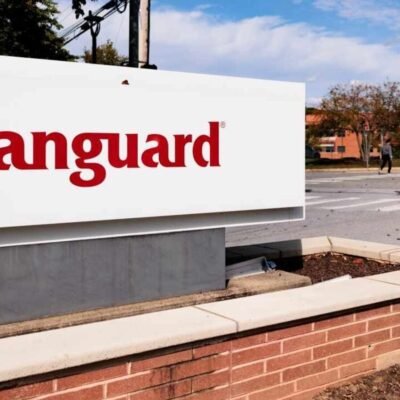Sellars said: “It’s just peace of mind. It’s only a small limit but it does help.”

The Fair For You Shopping Card works as a prepaid Mastercard which can be used at select retailers, including Argos, Iceland, Habitat and Dunelm – and is now being expanded. Those behind it – also behind the Iceland Food Club scheme which allows shoppers to take out interest-free loans for groceries – say it’s an alternative to an expensive cycle of borrowing for those at the sharp end of the cost of living crisis.
Customers are able to reschedule payments, and face no charge for repaying early or changing schedule. It is now being launched more widely, beyond an initial trial.
It comes as BNPL regulation is introduced by the Labour government, which it says will end a current “wild west” landscape by bringing lenders such as Klarna under the rule of the FCA. But alternative lenders – credit unions etc – lag behind in the amount they can lend, presenting the vulnerable with limited alternatives
Simon Dukes, CEO of Fair For You – which has received investment from Big Issue Invest, Big Issue’s social investment arm – said the majority of the company’s customers have less than £100 in savings or struggled to get access to credit
“Our customers have few other fair options – they are getting declined by commercial lenders simply because these lenders won’t go to the trouble of offering the control and flexibility that we do,” said Dukes. “Upcoming regulation of BNPL providers may make this option even less available to our customers.”
Adam Butler, policy officer at StepChange, said problem debt is usually driven by either persistent low incomes, bad life events, or both. StepChange’s research has found use of BNPL is almost as common as overdraft debts and 80% of the time was used alongside other credit. The average StepChange client has six unsecured debts – such as BNPL, store cards, or credit cards, Butler sad. “For people who are struggling with living costs this very often draws them into difficulty because they are motivated borrowers, there’s always a reason to use more of the limit, and month by month gradually the repayments increase,” said Butler.
Other options are desperately needed, he added. “There is a real desperate need for alternatives to borrowing for people who are most financially vulnerable”, said Butler. “You can’t solve cost of living problems with credit.”
But Butler hoped new government rules would not make life harder for those struggling. “We don’t want to see access cut off. We want to make sure obviously unaffordable lending stops,” he said.
For Sellars, the difference in her life is stark. But she admitted the shopping card is currently limited: “They do need a few more shops to be honest,” she said. “It’s a shame. It’s so good, so if there were more shops on it it’d be brilliant.”
Big Issue has been at the forefront of the fight for fair credit for years
It’s expensive to be poor.
The poverty premium sees the average low-income household pay out an extra £490 per year for essential goods and services. For some people that cost can be as high as £1,190 annually, according to anti-poverty charity Turn2Us.
Access to credit can be difficult for people who have a poor credit score or limited funds. Some mainstream lenders won’t touch them and that drives people to high-cost credit and buy now, pay later agreements that come with eye-watering interest rates.
Big Issue has been working to change this for years. Our founder Lord John Bird’s Creditworthiness Assessment Bill tried to right this wrong back in 2018. The crossbench peer introduced his Private Member’s Bill to level the playing field for renters, who saw no boost to their credit score by paying rent to their landlord every month.
Like many Private Member’s Bills, the draft legislation didn’t make it into law, despite clearing the House of Lords. But it started a conversation that has given people more opportunities to build up their credit score.
Big Issue’s Rental Exchange, run in collaboration with credit reference agency Experian, helped tenants build up a positive credit file. Experian now even takes into account payment history on subscriptions such as Netflix and Spotify or keeping up with Council Tax as a way of improving credit scores through its Experian Boost initiative.
Meanwhile, Big Issue has continued to demand change from government. Our Blueprint for Change called for Keir Starmer’s Labour government to outlaw high interest credit and make loans and credit sources affordable, equitable and fair in its first 12 months in Downing Street. The deadline for that to be achieved is coming up shortly.
We’ll keep on fighting for those on the lowest incomes to have fair access to credit and to prevent them from being trapped in an endless cycle of debt.
Promises are easy to break. Sign Big Issue’s petition for a Poverty Zero law and help us make tackling poverty a legal requirement, not just a policy priority.
Do you have a story to tell or opinions to share about this? Get in touch and tell us more. Big Issue exists to give homeless and marginalised people the opportunity to earn an income. To support our work buy a copy of the magazine or get the app from the App Store or Google Play.





